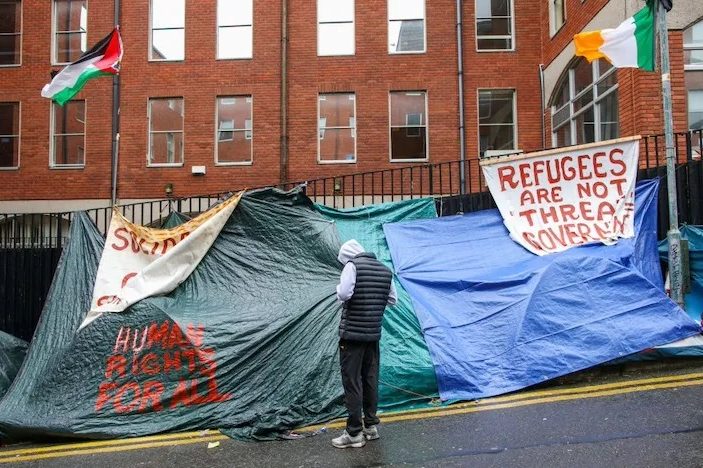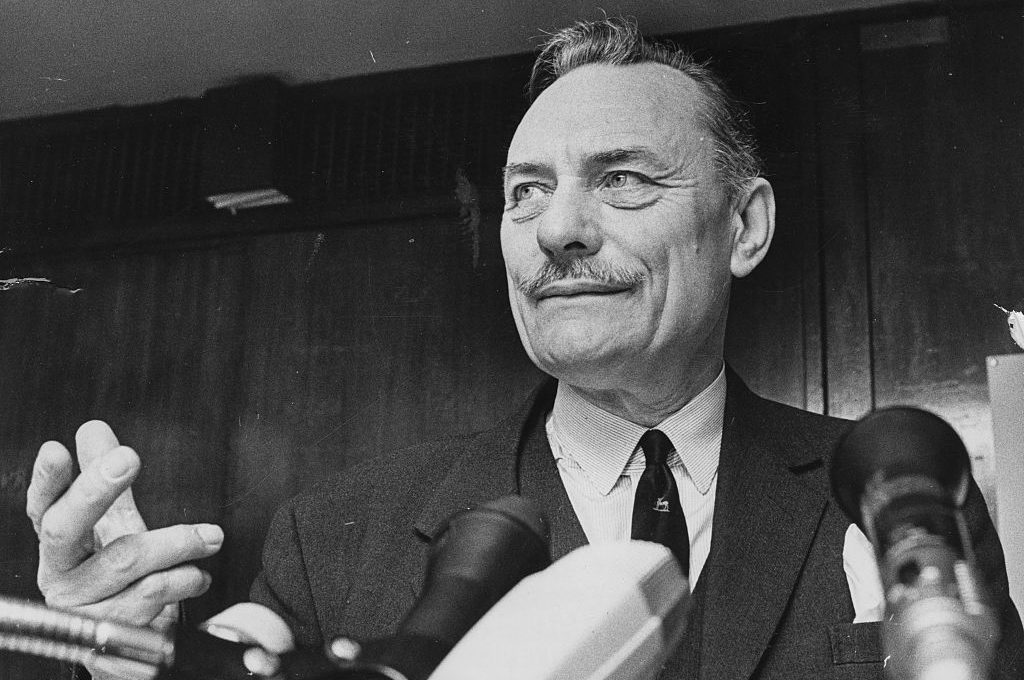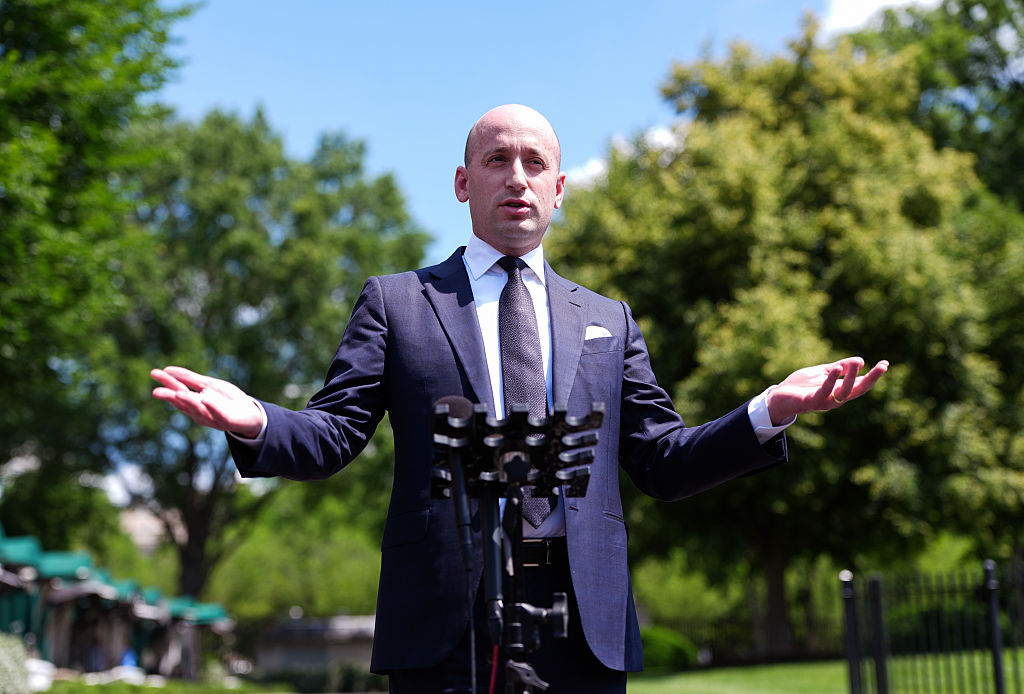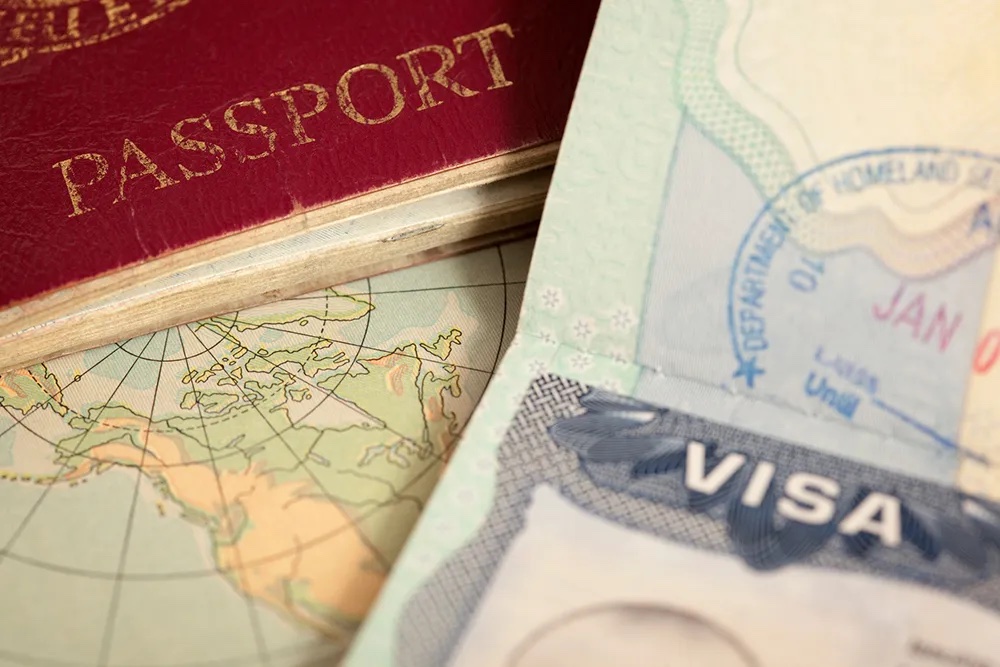Ireland is gearing up for its general election this Friday — and what started out as a relatively moribund campaign seems to have finally kicked into gear.
The two main bones of contention remain the housing crisis and immigration. To the frustration of many voters, politicians refuse to accept these issues are linked
A large part of the new energy can be pinned on Simon Harris, Ireland’s TikTok Taoiseach, who has been traveling the highways and byways of Ireland with his own dedicated social media team. Last week, he achieved his obvious aim of going viral, although not for the reasons he would have wanted. When approached on a walkabout by a woman who works as a carer he took a strangely defensive attitude to her complaints and interjected several times, snapping “not true” before abruptly shaking her hand and walking off.
Within a few hours, the gaffe was leading the news bulletins. Opposition parties such as Sinn Fein were quick to point out that his strangely dismissive attitude displayed “the real face of Fine Gael… their absolute contempt for working people.” Within hours, Harris insisted that he would call the care worker, but it may well prove to be too little too late. Many observers have already compared the incident to Gordon Brown’s infamous “bigoted woman” remark in 2010.
Meanwhile, a Sunday Independent/Ireland Thinks opinion poll showed that Fine Gael’s support has dropped four points since the start of the month and is now resting precariously on 22 percent. They’re still the largest party but a resurgent Sinn Féin are now tied with Fianna Fáil on 20 percent and, rather suddenly, this is now looking like a three-horse race. This latest poll was conducted before the Harris mistake on Friday. Ultimately, however, this election won’t be decided by a photo-op gone wrong.
There is a more general air of public disgruntlement in Ireland, with the government seeming totally aloof and uninterested in the concerns of ordinary people. The two main bones of contention remain the housing crisis and immigration. Yet to the frustration of many voters, politicians refuse to accept these issues are linked. In fact, they have accused anyone who raises that connection of the gravest sin in modern Irish politics — lacking compassion.
We heard the word “compassion” used liberally during a frequently farcical televised leaders debate on RTE last Monday. A ridiculous ten people took to the stage but immigration was mentioned almost as a late afterthought. The issue was relegated to one soundbite towards the end, while both climate change and the war in Gaza were discussed at baffling length.
That contrast reflects the metropolitan obsessions of both the media and the politicians here. Quite simply, they often seem more interested in discussing the weather and the Middle East than trying to solve the problems which keep Irish people awake at night.
Nowhere is the collision between housing and immigration more clear than in the government scheme to build hundreds of modular homes for some of the estimated 100,000 Ukrainian refugees who are now living in Ireland.
At a time when the number of homeless people in Ireland has reached an all-time high — at around 15,000 — the apparent urgency in building new homes for Ukrainians has stoked tensions. Already, 500 of the modular homes have been built, but the construction of several hundred has been halted due to protests at various sites. That the project has now run wildly over budget has not eased tempers.
When the first Ukrainians arrived in Ireland, they were greeted with open arms. But that warm welcome has rather cooled in the last twelve months, and numerous accounts of Ukrainians asylum seekers taking up a free home here, yet still returning to their homeland for holidays has angered many. The fact that the government has even issued guidelines for Ukrainians going home for Christmas about how long they are allowed to be out of the country has also stoked fury.
The depth of division created by immigration can be seen in the travails of Sinn Féin. At one stage the party looked on course to achieve a record number of supporters. But then they lost much of their older, more traditional base when they took a heavy swerve towards fashionable social justice issues and became yet another party of open borders.
They have since walked some of that back, which was reflected by their bounce in this weekend’s poll. But immigration remains the third rail of Irish politics, with all the main parties steering clear — apart from the Greens, who want to bring more people.
According to the deeply unpopular green minister for integration, Roderic O’Gorman, 15,000 asylum seekers arriving in Ireland per year will be the “new normal.” Given that there were 2,010 asylum seekers in May alone, 15,000 seems a suspiciously optimistic figure.
Having told many communities that they would have no veto over new developments for housing asylum seekers in their area, the Greens were then accused of gross hypocrisy when it emerged that both O’Gorman his and fellow party TD, Francis Noel Duffy, had objected to planning applications in their own area. In fairness to Mr. Duffy, he had a compelling reason for objecting: he said the proposed development “overlooks our kitchen.”
But while the main politicians don’t want to talk about immigration, a record number of independent and single-issue community candidates standing this Friday do. Many of these candidates are already calling this week’s vote their “Independents’ Day.” If the rising center right Aontu, a more conservative offshoot from Sinn Féin, can steal as many votes as some are predicting, we could be heading for a very interesting outcome.

























